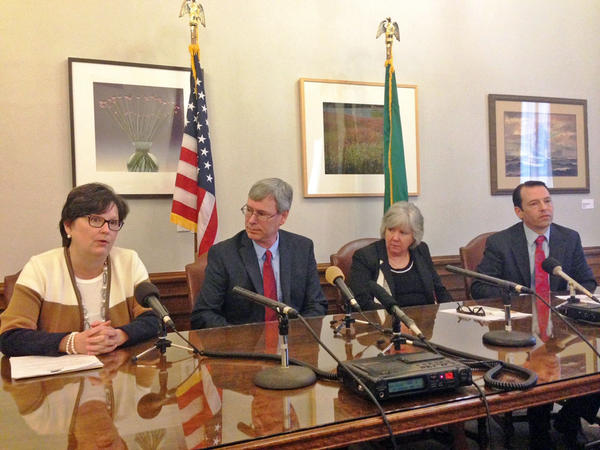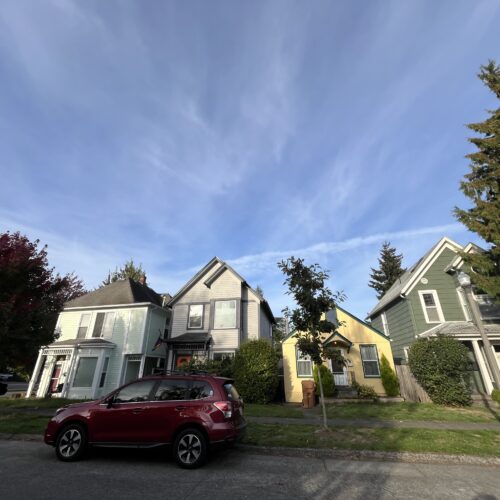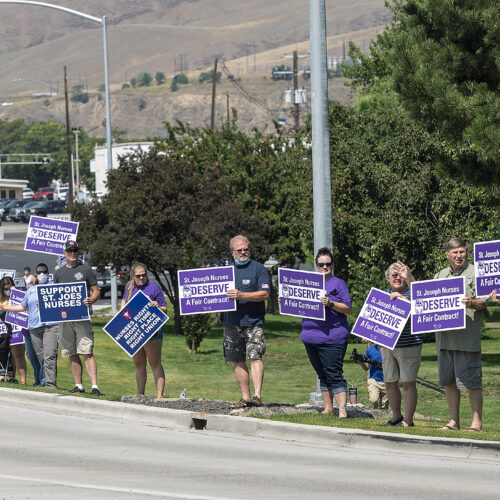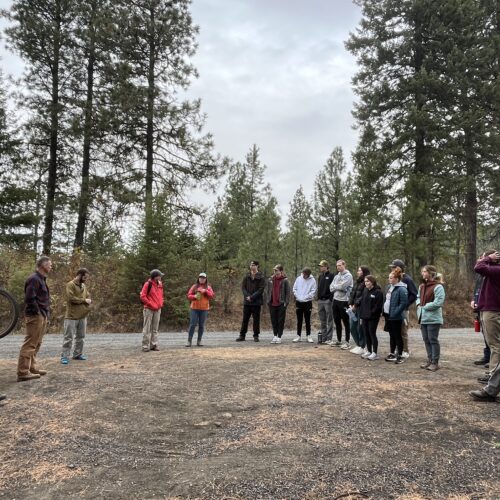
Groundhog Day In Olympia As Budget Gridlock Means Overtime Session
Listen
Washington Gov. Jay Inslee will likely call lawmakers back into special session on Monday. This comes as the clock runs out on the 105-day regular session without a budget deal–or agreement on school funding.
That’s led to plenty of finger-pointing at the Capitol.
It’s a movie we’ve seen before. House Democrats and Senate Republicans can’t even agree to get to the negotiating table, much less agree on a budget. Republicans say negotiations can’t begin until Democrats pass the taxes that are assumed in their budget. Until then, according to Senate Majority Leader Mark Schoesler, they’re just “ghost dollars.”
“Negotiating with ghost dollars is particularly difficult.”
Democrats counter that the Senate budget has its own ghost — a requirement that voters approve a key part of their education funding plan. Democrats accuse Republicans of unreasonably holding up budget talks.
“I don’t know how you can begin any kind of negotiation until you have a willing partner who’s willing to come to the table,” House Majority Leader Pat Sullivan said.
And so it goes. Call it what you want: gridlock, loggerheads, dysfunction. Or maybe Groundhog Day.
To be sure, it’s affecting the mood of lawmakers.
‘I will continue to be optimistic’
“I cannot tell you how frustrated I am with the process,” House Finance Committee Chair Kristine Lytton, a Democrat, said.
Others like Schoesler are putting a positive spin on the situation.
“I came here optimistic and I will continue to be optimistic.”
Once lawmakers do get to the negotiating table, their task is a big one: write a two-year budget that balances over four years and, at the same time, fully funds schools beginning next year — as required by the state Supreme Court.
So far Democrats and Republicans have taken completely different approaches to tackling this challenge. Republicans propose a property tax levy swap to put more of the burden of funding schools on the state. Democrats propose a multi-billion tax package that includes a new tax on capital gains.
Neither side likes the other’s approach. And neither plan satisfies the lawyer who sued the state in the McCleary school-funding lawsuit.
“Levy reform is a convenient side show, a convenient excuse for legislators to say ‘well we’re talking about something serious and we’re going to something,’ but that’s not the something that was ordered,” Tom Ahearne said of the Republican plan.
As for the Democrats’ tax plan, Ahearne said the state has plenty of existing money to fully fund schools.
“If taxes have to be raised for something it’s to fund the non-paramount duty stuff, not the schools,” he said.
One high-profile agreement
But it’s not just the budget that’s divided this divided legislature. Efforts to change Washington’s police deadly force law fell short this year. There’s been an ongoing battle over how to address a jump in car tab fees because of a voter-approved expansion of Sound Transit in central Puget Sound.
There are also things each side wants: House Democrats are pushing for an internet privacy bill. Senate Republicans want to make a fourth DUI a felony. Some of these issues could resolve in the final hours of the regular session. Others could spill over into the special session. Some may just be dead.
The two sides did find agreement in the waning hours on one high profile topic: they’ve sent the governor a sweeping new distracted driving law to crackdown on the use of electronics behind the wheel.
“We know that we love our phones and we have a very hard time putting them down and that is affecting our driving behavior and we are less safe on the roads because of it,” said Democrat Jessyn Farrell, who led the effort in the Washington House.
The measure will take effect in 2019 and prohibits drivers from using an electronic device while driving or even stopped at a light.
‘Somebody needs to be the adult in the room’
As for what happens next with the budget, Sullivan said, “I think somebody needs to be the adult in the room and say ‘look let’s just get together, let’s figure out a budget that actually supports the state of Washington, the people who live here and get our work done,’ and that’s we’re calling for.”
Schoesler said he doesn’t want a repeat of last year. That’s when Inslee got out his veto pen in an effort to force lawmakers to compromise.
“I hope the strategy isn’t 27 vetoes of Senate bills this year. That would be really unfortunate,” Schoesler said.
If history is any guide Washington lawmakers will take until the end of the fiscal year pass a final budget. That’s June 30.
9(MDAyOTk4OTc0MDEyNzcxNDIzMTZjM2E3Zg004))
Related Stories:

Galardonado actor Adam Beach visita Toppenish
Noviembre es el Mes de la Herencia Nativa Americana. En el centro de Washington, diferentes actos celebran a estas comunidades. El viernes 22 de noviembre, Heritage University recibirá en Toppenish al galardonado actor Adam Beach.

Award-winning actor Adam Beach visits Toppenish
November is Native American Heritage Month. In central Washington, different events celebrate these communities. On Friday, Nov. 22, Heritage University will host the award-winning actor Adam Beach in Toppenish His visit is closing out the university’s events recognizing the Native American communities’ contributions.

Tacoma City Council moves forward with zoning changes
The next phase of Tacoma’s attempts to address housing shortages will soon be implemented, as the Tacoma City Council has voted unanimously to adopt the second phase of the Home in Tacoma zoning package.
The package of changes to city zoning standards aims to create more opportunities for different types of housing across the city, including by allowing more units to be developed on a standard city lot.












